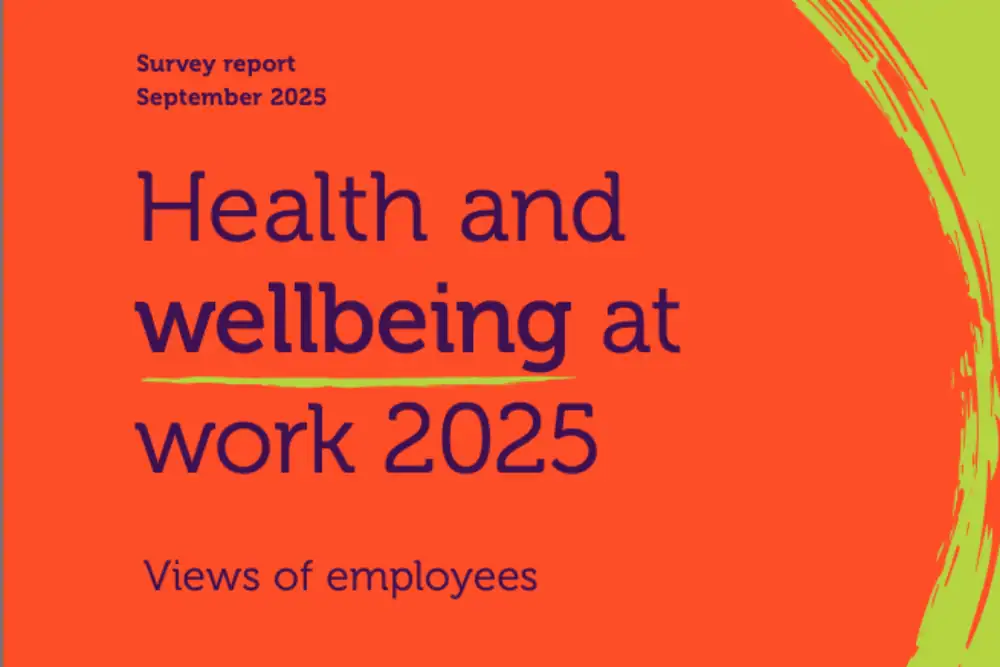The CIPD reported this September that sickness absence at work has again increased, to 9.4 days per employee per year. This is at its highest in over 15 years.
With mental health cited as the 2nd highest cause of short-term absence (29% of absences). It’s also the highest cause of long-term absence (41%). This is a clear sign that looking after the mental health of our people is more important than ever.

Reference: https://www.cipd.org/uk/knowledge/reports/health-well-being-work/
Jacqui, our founder, knows from her years of HR experience that managing sickness absence well brings people back to work who are engaged and positive. It improves productivity while supporting better wellbeing at work in the future.
Manager influence: are leadership and management courses the answer?
The short answer is maybe, and we’ll explain why below.

A 2023 Gallup report found that managers have more influence over our mental health than either our therapists or doctors. Knowing how managers are part of their people’s lives over days, weeks, months and years, this makes sense.
The good news is, that means as employers we have an opportunity to positively influence wellbeing and mental health. We can do this by training and investing in our managers. The results won’t just impact manager performance. They’ll have a ripple effect across the organisation improving productivity, reducing sickness and creating a stronger organisational culture.
Findings from the CIPD back this up. Only 29% of organisations train line managers to support mental health. 57% of those that do not offer training are confident in their managers’ ability to spot the early warning signs of mental ill health and have sensitive conversations with employees. While they may feel confident in their managers, is that confidence well founded? Or is it hope? Let’s face it, if managers aren’t trained, how do you know the quality of the conversations they are having?
Organisations that do offer training report more positive findings; for example, 73% of employers who train managers agree that ‘managers are confident to have sensitive discussions and signpost staff to expert sources of help if needed.’
The report found that mental health training for managers increases the number of managers who are confident in these conversations, and, more importantly, it increases the number of managers who are spotting early signs of poor mental health, enabling more pre-emptive support for employees, and so reducing sickness absence.
Supporting managers and creating organisational culture change
The ‘maybe’ comes from the training itself. Learning people management skills is often harder than learning technical skills, because human relationships are complex. Where sensitive topics are involved, there’s no simple rule book for how to have these essential conversations.
Getting the results your organisation needs depends on how training is delivered and how managers are supported to put their new skills into practice from day-to-day.

© Iqoncept | Dreamstime.com
Your managers have a significant impact on the culture of the organisation. The main actions for managers to improve mental health among employees are:
- Encouraging open conversations with their teams through 1:1s and building trust.
- Spotting early signs of mental health issues and signposting employees to support.
- Building confidence in return-to-work conversations for anyone who needs to take leave: staying in touch and continuing to build trust are so important.
However, managers cannot manage wellbeing for your organisation alone! Based on our work with clients over the years, here are examples of the support they need from the rest of the organisation and how management skills (delivered by management courses to promote good mental health at work) fit into the picture.
1/ Identify the main mental health risks in your workplace
This is much easier to do when:
- Robust systems are in place for absence monitoring so HR can review and analyse the data.
- Managers are trained in having supportive conversations and are sharing relevant data (as appropriate) so wellbeing patterns across the organisation can be understood.
- Carry out stress risk assessments to identify areas to address. If stress is the highest cause of long-term sickness absence, you owe it to the organisation to address the root causes.
- Data from employee surveys, occupational health and uptake of benefits or services is gathered and taken into account.
When you have an accurate picture of the main risks and challenges, you can develop a plan for mitigating them and invest in the support that’s most needed in your organisation. This will guide activity in the following areas.
2/ Raise awareness of mental health across your organisation
When discussions about mental health become normal at work, employees will be much happier to talk about their wellbeing and their needs with managers. In turn, leadership, managers and HR will have more information on what support employees need.
Things like the following will help increase conversations about mental health at work:
- Training Mental Health First Aiders (MHFAiders) will help, but this alone isn’t enough. It’s part of a strategy, it isn’t THE strategy.
- Provide mental health awareness training for all that covers how to recognise the signs, where to go for help and how to support colleagues, encourages open dialogue.
- Organise awareness events to help get conversations going.
- Senior Leaders MUST engage with these initiatives. If the SLT refuse to engage it reinforces stigma related to mental health issues. Encouraging leaders and managers to share their own mental health experiences, in the right environment, and when they’re comfortable doing so, helps reduce the stigma.
3/ Prioritise people management skills and tasks to reduce work-related stress
This comes back to leaders and managers, but they need to be trained and supported. To be effective in helping managers to promote wellbeing, leadership and management courses need to build confidence in the following skills.
- Job design and recruitment.
- Initiating open, honest conversations.
- Delegation and workload management.
- Managing performance and giving feedback.
4/ Signposting specialist support for employee mental health
Managers (and MHFAiders) need services they can signpost employees to. Just as you wouldn’t expect a first aider to do surgery, you wouldn’t expect a manager, or MHFAider to act as a therapist.
Specialist support includes:
- Employee assistance programmes (EAP),
- Occupational health services,
- Services outside the workplace like local GPs, counsellors and other wellbeing services.
How can Your People Potential help?
We care about improving mental health at work because it’s good for people and it’s good for organisations. Your people are more engaged, easier to retain and their performance will be better when they are healthier.
That’s why we do the work we do, and we can help you with:
- Wellbeing audit: these can be a one-off to address a particular issue or they can happen regularly, to monitor and maintain wellbeing. We agree times to talk to your people (individually), advise them on sources of support and gather useful data on what initiatives across the organisation will help so you’re not guessing.
- Management training to promote and support mental health at work: Our course for managers is run over three x half days, ensuring they build the skills they need to actively support their people, for better mental health.
- Realising Your Leadership Potential: Our 12-month programme that covers all the skills leaders and managers need to lead high performing teams. We can deliver this in-house, or through our open programme.
- Bespoke programmes: with our extensive experience in HR, creating training programmes that deliver results, and coaching your people, we can work with you to understand the real issues and deliver training that creates positive change.



